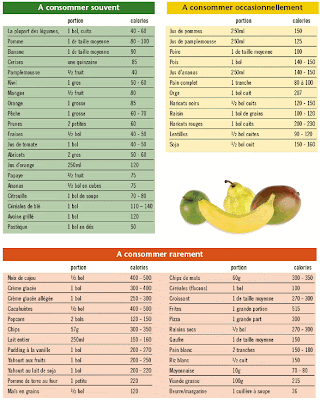Choose between the following three tables of calories:
- Table of calorie intake and VITAMINS over 400 foods
- Table of calorie intake and Carbohydrates, proteins, lipids of over 500 foods
- Table of amounts of calories burned by physical activity (per hour, for three different weights, over 200 sports)
As a reminder, here is the definition of a calorie, "the quantity of energy needed to move up the warmth of 1 gram of water 1 degree Celsius." To be specific, rising from 14.5 ° C to 15.5 ° C.
The term calorie is not a unit of measurement used by the international system (which replaced since the 01/01/1978 by the joule (J). The calorie is used in dietetics or nutrition, possibly in chemistry, but not in other areas.
1 calorie (at 15 ° C) is equivalent to 4.1855 joules (J).
Nutritionists use the high calorie (Cal) which is equal to a kilocalorie (kcal), that is to say, to 1000 calories. One kilocalorie (kcal) is equivalent to 4,186 joules. In common parlance, one often uses the word "calorie" to mean actually "kilocalories (kcal)".
A gram of fat provides nine kcal (that is to say, is to say 9 calories in current language) into energy.
One gram of protein or carbohydrate provides four kcal (that is to say, is to say 4 calories in common parlance).
You may encounter the notion of " empty calories "in dietetics. The "empty calories" are discoverable calories in foods or ingredients providing energy accompanied by a very small amount of non-energy compounds (e.g., fiber, minerals, micronutrients). I can be found empty calories in drinks, alcohol, chocolate bars, etc....
